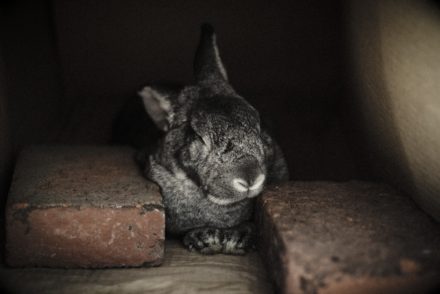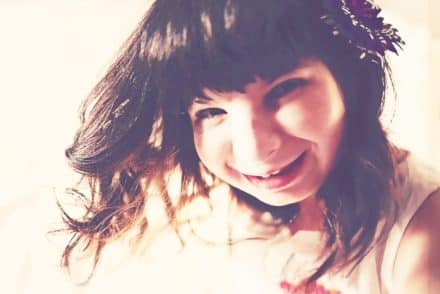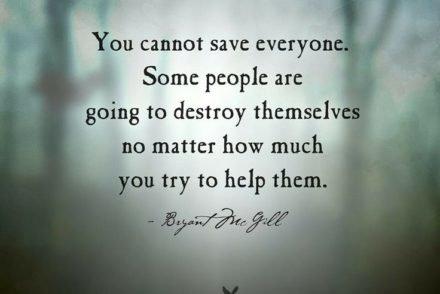By Bernadette Murphy
It’s two days after the World Trade Center collapse and I am unable to function. I watched yesterday, with my kids as they hoisted on their backpacks ready for the school day to begin, scenes of destruction that I am still unable to fathom; it will be months if not years, I fear, before the scope of what’s happened can penetrate my mind. As the second tower imploded, live in Technicolor on our screen, my six-year-old daughter, Hope, ran to her bedroom to get her ceramic angel. The angel, which had been a baby shower gift when I was expecting her birth, used to be a nightlight, but Hope’s since removed the inner working and keeps the ceramic angel as a playmate. She came back to the television set just as CNN showed the first of countless repeats of the horrific scene. Hope held her angel to the television screen so that the angel could see the destruction, confident in the belief that the angel would be there with the wounded and dying. This image continues to haunt me; I wish I could believe today as simply as Hope believes.
Later, I tell my friend Marjorie about Hope’s actions. I e-mailed her because I’m as yet unable to talk with people about these happenings. Marjorie’s older brother has been fighting the fires at the Pentagon, the very place where her father, as a military physician, had worked until recently. Marjorie grew up an army brat on bases around the world; she’s also Arab- American.
“Hope was well named,” Marjorie e-mailed back, telling me she’s as stunned and incapable of normal action as I am.
I’ve been watching the news nearly nonstop since the attacks. When I get sick of seeing the same scenes before my eyes, I switch off the TV long enough to read every word of coverage from the Los Angeles Times. I can think of nothing else. It’s a huge relief when the school day comes to an end and I’m forced to turn off the television and function as a mother, if only at 10 percent capacity.
As a freelance writer working for myself, I have no clocks to punch, no bosses to appease; if I wish to spend my entire day in the pain and sadness of this tragedy, I can do so. In some ways, I think of this as a blessing. It seems vitally important to me, somehow, to be a witness to these events. To not brush them off and get back to normal as soon as possible, but to feel as deeply as I must the heartbreak and incredible grief that swamp me. While everyone talks of retaliation and patriotism, buying flags and making God Bless America signs, I can do nothing more than feel the huge, overwhelming pain of these events.
I don’t want to talk about why someone would do such a thing. I don’t want to analyze what America’s response should be or how our world is forever changed. To do any of those things requires an ability to intellectualize something I haven’t even begun to process emotionally. Some might accuse me of morbidity, but it seems important to be present with this destruction, to feel it deeply and honestly, to recognize how badly this hurts. Only when I can fully embrace my own sense of woundedness will there be any hope of determining how to move forward. By the second half of the second day, I can do one thing other than watch the news and read the papers. I can knit. It seems stupid to think of this craft as anything important in the light of what has occurred, but still I do. I need to center myself again. It’s not fear I’m battling, though knitting is a good antidote to fear, but deep, abiding sadness, irreconcilable loss, the sense of things being torn asunder. A good friend of mine who’s a native of Manhattan (but now an avowed Angeleno) is grieving as well. We both agree that instead of waving flags, what we feel like doing is following the Jewish rite of mourning, which involves wearing a piece of black fabric pinned to one’s garment, fabric that’s been rent to show the irretrievable nature of loss.
As a writer, I don’t recognize this silence. I am used to making my opinions known clearly and sometimes forcefully. Today, words fail me. Two sticks and a ball of wool are my only form of communication. I know the words will return, but until they do, I’m grateful to know my knitting can say for me what I cannot say for myself. This is what my knitting tells me: that I have faith in tomorrow. That we are all joined together. That each stitch is vital to hold the garment together, just as each person is vital to this world.
So I knit. Not as a way to rejoin those rent pieces; such is far beyond me. But to remember the unity that underlies all life. Today, when I knit, each stitch represents to me the people whose lives where cut short by this tragedy. Like my time in the hospital trauma center, I can hold each soul in my thoughts for just a moment and pay a quiet kind of tribute in my knitting. It’s not much, I know, but it feels important. I can look at the wonderful way the stitches hang together and acknowledge that yes, if a gash were torn into this work, huge chunks would unravel. The damage could not easily be rectified. Such is the nature of this tragedy.
And yet at the same time I realize that we need to embrace unity. Not just American unity symbolized by the red, white, and blue that has suddenly appeared on every street corner. Not just the unity of the NATO alliance and its wonderfully supportive statement that “an attack on one is an attack on all,” but the unity of all humanity.
If we can get beyond borders and ways of creating separation—whether by ethnicity, religion, or geography—maybe we could see things clearly. We are all made of the same materials, we are all joined in the knitted garment of life. Whether terrorism tears a gaping hole in the flashy center of the fabric or economic injustice slowly eats away at a sleeve, the damage to one part of humanity is damage to the whole. We are each stitches, necessary for a completed work, holding together our neighborhoods, our communities, our states, and our nations. Unless we see and respect this joined nature of our lives, we will certainly unravel.
So I knit and I cry; and grief threatens to overwhelm me.
And I try to make this piece I knit an artistic statement of what I believe. I try to celebrate the diversity of the peoples of the world the way I celebrate the diversity of yarn colors and textures, of sweater options and knitted choices. If there were only one or two types of sweaters available to me to knit, how quickly I’d be bored with those types. But there are countless. Thank God, there are countless.
I’ve been reading in the paper lately about how our nation’s priorities seem to have shifted dramatically in the wake of September 11. Sales of board games like Scrabble and Monopoly are skyrocketing. Parents are staying home to be with their children, resurrecting fallen-by- the-wayside rituals like bedtime reading and family dinners. This one horrific event has taught us just how precious our time on Earth is and how lucky we are to have these beautiful children, spouses, friends, families. We’re taking the time to cherish them. I don’t know how long this reconnection phase will last, but I hope the hard-won lesson of that terrible day isn’t lost in the months and years to come.
One thing I have noticed is that more people have been asking me to teach them to knit.
I’m going to a women’s group this coming Sunday. Twenty-five professional women want to spend a few hours with me and learn an ancient craft.
These women, like me, are not looking to turn the clock back to more “innocent” times, to an age when women feathered the nest, tending home and hearth to the exclusion of professional and interior lives.
No, we’re women who are educated, who are competent, who can make our ways in the world. We want to spend time with ourselves, awake and aware, as we go. We want to relish the fruits of all our hard-won educational and professional pursuits by taking the time to sit still and count our blessings. We want to show others how much they mean to us by making a piece of ourselves for them to wear. We want to fuel that great creative urge into a productive outlet.
I read once that the opposite of war isn’t peace but creation.
As war begins and deaths from September 11 are tallied, as life takes on the luminance of its true precious nature, I knit. I knit to see the connection with my fellow human, to replicate in my actions the web of humanity that ties me not only to those devastated in New York, Boston, and at the Pentagon, but with all my brothers and sisters around the world. It is indeed a global community in which we live, and when I knit, I am reminded of this.
# # #
Bernadette Murphy writes about literature, women, risk taking, and life — from motorcycles to knitting. She has published three books of narrative nonfiction: the bestselling Zen and the Art of Knitting (from which this essay is excerpted); The Knitter’s Gift; and The Tao Gals’ Guide to Real Estate). Her newest book, Look, Lean Roll: A Woman, A Motorcycle, and Plunging into Risk, will be published in Spring 2016. She is an Associate Professor in the Creative Writing Department of Antioch University Los Angeles and a former weekly book critic for the Los Angeles Times. Her website is Bernadette-Murphy.com.







1 Comment
Thank you for writing this.